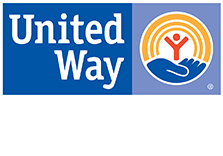Five Tips for Preparing Five-Year-Olds for Kindergarten
By Barbie Jones, Early Childhood Liaison for Derry Area School District
Susan spent her early childhood years with a nanny and had no experience with schoolmates before walking into kindergarten. Her classmate Malik had a solid foundation of knowledge from years at a quality early childhood program. James grew up with a lot of other children his age, but without any structured learning time. With so many backgrounds, how can we ensure universal success in kindergarten and provide our children with the solid foundation they need to thrive throughout their academic careers?
Research shows that children who start kindergarten with a solid foundation in literacy and numeracy, along with well-developed social skills, have a significantly higher likelihood of becoming successful students later in life. During the first few years of K-12 education, all schools face the challenge of supporting students who did not have the opportunity to develop these skills early in their academic career. Catching these children up to their peers and providing the necessary supports to help them reach their highest potential is the goal of every early childhood education professional. As a result, schools are engaging with families and children at younger and younger ages, so more children are confident and prepared for this new chapter. And since nearly 90% of a child’s brain is physically developed by age six, it is critical to reach families and children sooner rather than later.
As the Early Childhood Liaison for the Derry Area School District and partner in United Way of Southwestern Pennsylvania’s Kindergarten Transition Program, I have seen the impact our regional network of early childhood educators has made on children six years of age and younger. Over the past 17 years, this network has developed into a platform for educators to gather together, plan activities and identify useful resources to engage families in Westmoreland, Fayette and Southern Armstrong Counties.
I would like to share five tips that will help prepare young learners and their families for school readiness and kindergarten:
- Choose a High-Quality Pre-K Program – Each year, children enter kindergarten with a variety of backgrounds and ability levels. Although the number of children attending pre-k has increased over the past decade, there are still children entering kindergarten with limited abilities in interacting with their peers or unfamiliar adults. High-quality pre-k programs from around the region strategically develop the academic and social skills required for kids to transition smoothly into kindergarten classrooms. Often teachers can identify which pre-k program a student attended based on the skills they bring into the classroom.
- Collaborate with Community Partners – Teamwork between school districts, childcare providers and community groups is an effective way to engage future students and families where they already are – pre-school and childcare classrooms. By working together with local childcare providers, school districts are better prepared for the children joining them in the school year ahead. Childcare providers and families can also tap into school district events and resources they may not be able to access on their own, including free lunch programs over the summer and community events throughout the school year. For many families, interacting with school districts before starting kindergarten can make a significant difference in a successful transition.
- Be Your Child’s First Teacher – Before a child steps foot in school, his or her family is a critical source of learning and development. Over the past decade, school districts have worked hard to engage with families and children BEFORE kindergarten. By hosting registration nights, orientation meetings and fun events for families with children entering kindergarten in the fall, parents’ minds are put at ease, and they become more familiar with the expectations of the kindergarten classrooms. Each event helps children and their families feel comfortable with the new school environment and provides an opportunity to socialize with other families and teachers. Our local research proves that engaging future students and their families before kindergarten has contributed to an increase in on-time enrollment and improved readiness of children attending.
- Read, Read and Read Some More – Studies show that child literacy development improves dramatically when children are exposed early to a diverse and abundant range of words. And, in terms of kickstarting this process, nothing compares to the power of reading children’s books in the home. Schools and communities also contribute to these reading opportunities through the public library, free neighborhood libraries or by the distribution of free books through community organizations like United Way. However, just giving out free books isn’t enough. Each book distribution event or activity includes parent tip sheets for reading with their child, quick facts about the importance of reading and information about community resources available to families through partnerships with local human service agencies. This outreach, as well as the relationships developed through providing a free book, can help to relieve any tensions the parents may have with the school.
- Tap into All Available Resources – All school districts have similar expectations for children entering kindergarten. Children are considered school-ready if they can identify specific letters, numbers and communicate effectively with adults and peers. Free resources in the community can significantly help with early academic development, including free electronic educational games and other resources from PBS Kids. Local libraries have a plethora of early learning educational materials available and community groups often host gatherings that distribute school readiness materials. Our region is very fortunate to have so many resources available for families and young children. Frequently checking the websites of your local library and following your school district on social media will help you navigate the opportunities in your own community.
It’s true what they say: early learning lasts a lifetime. Kindergarten is a time of incredible knowledge, growth and yes, fun, for children in our community. Planting the seed early is the greatest way to set our children up for success. Let’s make the most of it.







